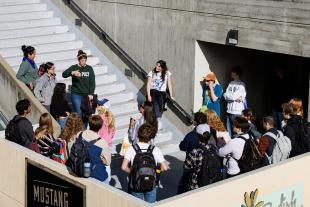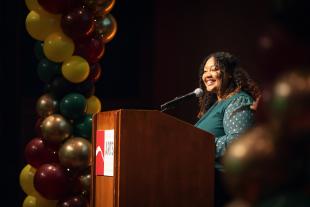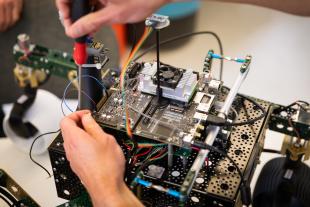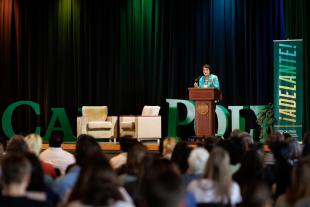MLK Legacy Award Honors Biomedical Engineering Professor’s Commitment to Students and Innovation
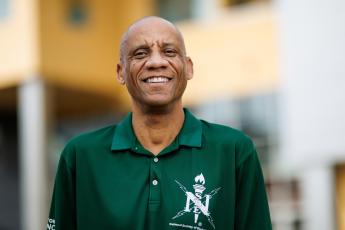
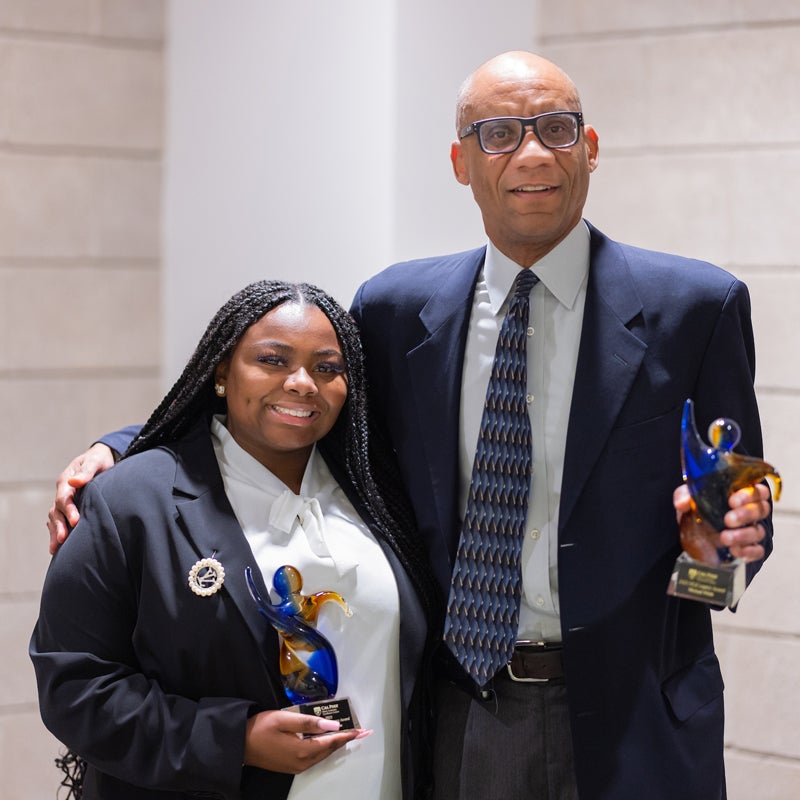
Biomedical engineering Professor Michael Whitt was genuinely surprised when he accepted the MLK Legacy Awards at the 7th annual MLK Jr. Legacy Event in January alongside student leader Nailah DuBose. That evening, he was running late — he was helping a student after class — and didn’t anticipate that Professor Camille O’Bryant would call his name or list his extensive accomplishments to the audience: earning an MBA in addition to a doctorate, holding multiple medical patents, launching trailblazing curriculum at multiple institutions, and supporting students as the advisor to Cal Poly’s chapter of the National Society of Black Engineers (NSBE).
Cal Poly News caught up with Whitt to talk about his career, campus culture and how he’s supporting the next generation of Black leaders.
What kind of leader do you aim to be on campus?
My leadership style is one word: encouragement. I feel like [students] will have enough people in the world tell them what they can't do. I want to be a person that tells them they can. Sometimes the problem is that I know the students can do something, but they don't know it yet.
You’ve been involved in NSBE as an advisor since 2018. How did you first connect with the club?
I went to Purdue, where NSBE was founded. A few years ago, I told one of the NSBE board members I'd like to come to a meeting and just talk about how NSBE was founded, the Chicago Six and the history. He had no idea, none of the students did. Although I wasn't there when it was founded, I think it's good to understand what people went through to get our organization started. I showed a video called “Black Purdue” and we discussed what those people did. I think it was huge. I went to the meeting with one of the future NSBE presidents Amman Asfaw, and we became really close. They're really good students. As their advisor, my job is just to make sure I don't mess them up.
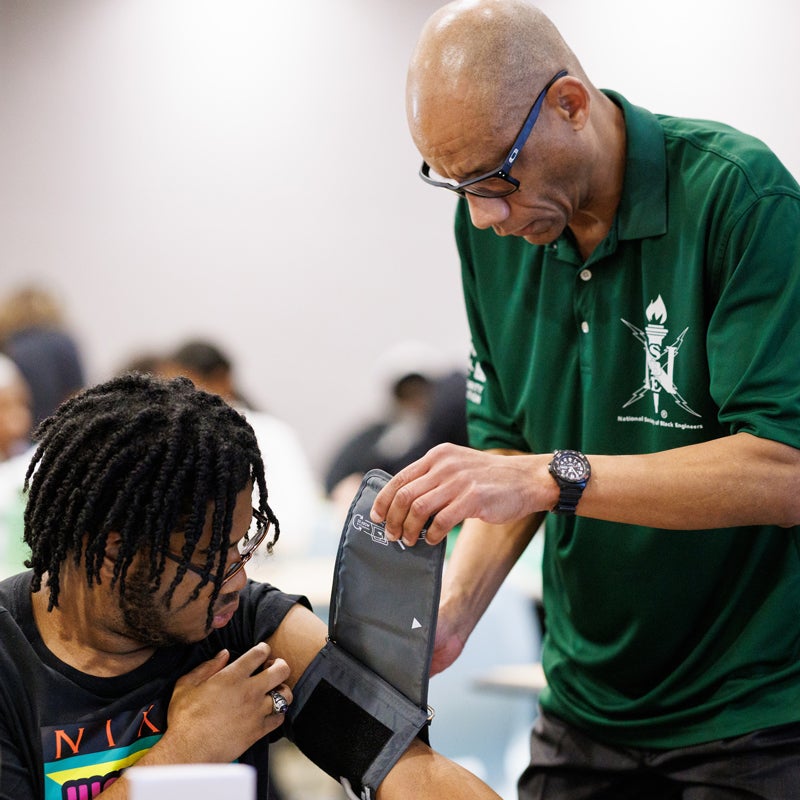
What has living on campus as a faculty in residence taught you about students today?
They have stresses that I would've never realized. I don't know how they've never been able to get off the grid. People can always get in touch with you. And as a 17, 18, 19-year-old, I don't think I could have done that. I’d take my boom box and my cassettes — and I know I'm dating myself — and I put my headphones on. I'd lay on the floor down in the basement or one of the study rooms. Nobody knew where I was, and it was great. The generation that's ours today has never known a time when they haven't been connected, plugged in and represented online.
Your bio says you hold five patents. What are they for, and how did they come about?
Actually, it’s more than five. There are U.S. patents — and those are the ones I really count — but then there are international patents and some that are pending. For example, my cousin and I developed a novel way to diagnose concussions that has to do with pressure time derivatives of all things.
But primarily my area of focus is cardiovascular health, so the five that that I talk about are in the early detection for cardiovascular disease. Dr. Kathy Magliato was my classmate at UCLA, and she and I started a company called Cordex Systems. [The device] uses the fundamentals of what I studied in graduate school to measure something called endothelial dysfunction, which is the most significant predictor of a cardiovascular event. It's in clinical trials at John’s Hopkins right now.
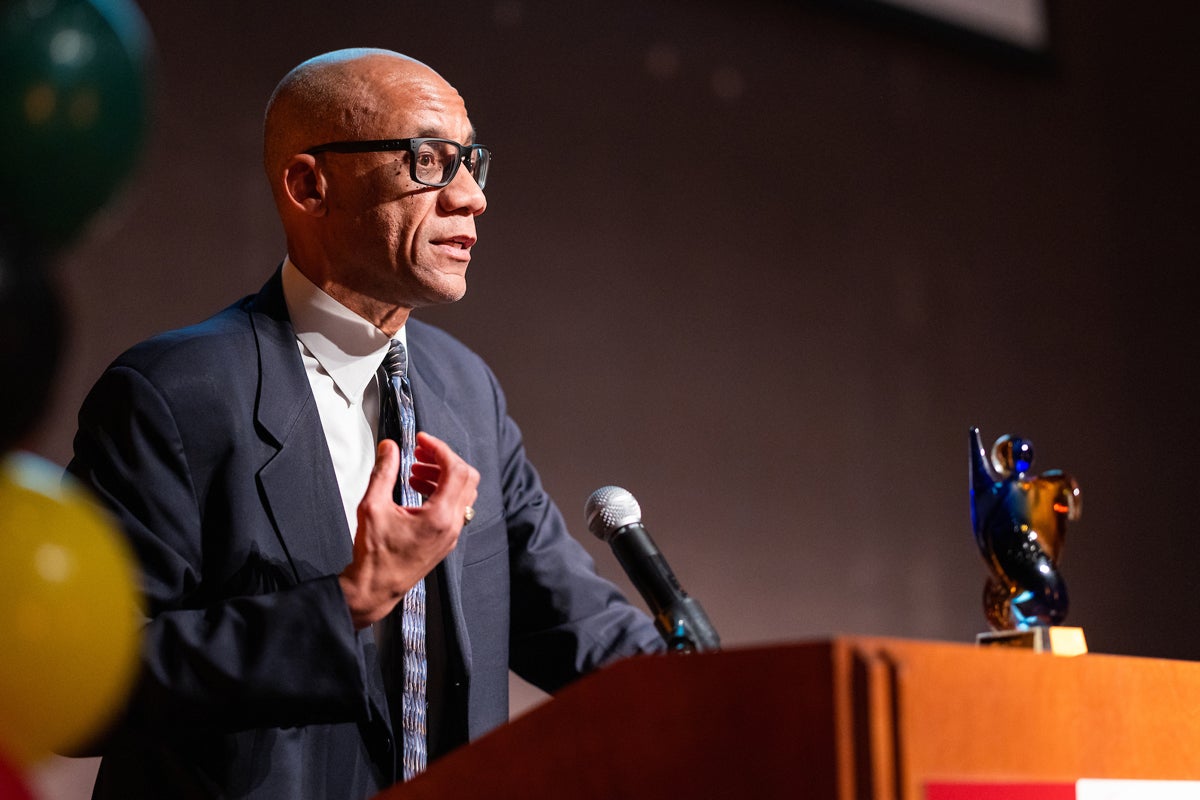
How have you seen Cal Poly’s campus culture evolve since you’ve been here, and are you optimistic about its trajectory?
One of the things that I love about being a part of this community is that I think we really do a good job on valuing the people that are here. And I hope that we get an opportunity to share that with more people. A lot of people with amazing abilities don't see their value in their communities. When somebody tells you they value you, you know you're in the right place. I don't know what else is more important than that.
We’re in an environment where you can tell people care. We're not perfect and we have incidents, but you can tell that our leadership cares and wants to get better. And I think that's the key. I want to be someplace where the team cares about getting better in different areas and create a culture that you want other people to join. There's no doubt that people genuinely want that here.
Want more Learn by Doing stories in your life? Sign up for our monthly newsletter, the Cal Poly News Recap!

